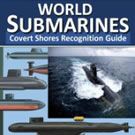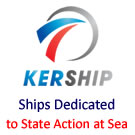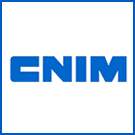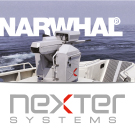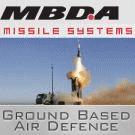| |
|||
| a | |||
Naval
Forces News - USA |
|||
X-47B UCAS-D achieves new set of firsts aboard aircraft carrier USS
Theodore Roosevelt (CVN 71) |
|||
The U.S. Navy's unmanned
X-47B completed its final test aboard USS Theodore Roosevelt
(CVN 71) Aug. 24 and returned to its home base at Naval Air Station
Patuxent River after eight days at sea. While underway, the X-47B flew
in the carrier pattern with manned aircraft for the first time and conducted
a total of five catapult launches, four arrestments and nine touch-and-go
landings, including a night time shipboard flight deck handling evaluation. |
|||
 ATLANTIC OCEAN (Aug. 17, 2014) The Navy's unmanned X-47B, left, is readied for launch as an F/A-18 Hornet conducts flight operations aboard the aircraft carrier USS Theodore Roosevelt (CVN 71). The aircraft completed a series of tests demonstrating its ability to operate safely and seamlessly with manned aircraft. (U.S. Navy photo taken by Mass Communications Specialist Seaman Apprentice Alex Millar/Released) |
|||
“This
is another detachment for the record books; all tests were safely and
effectively executed,” said Capt. Beau Duarte, Navy’s Unmanned
Carrier Aviation program manager. “We have set the bar for the
future of unmanned carrier aviation.” Testing began Aug. 17 when the X-47B performed its initial cooperative launch and recovery cycle with an F/A-18. With its automatic wing-fold capability and new tailhook retract system, the X-47B met the program’s objective to demonstrate that carrier-based manned and unmanned aircraft could maintain a 90 second aircraft launch and recovery interval. |
The
Navy's unmanned X-47B conducts flight operations aboard the aircraft carrier
USS Theodore Roosevelt (CVN 71). The aircraft completed a series of tests
demonstrating its ability to operate safely and seamlessly with manned
aircraft. (U.S. Navy video/Released) |
|||
Throughout
the week, the Navy/Northrop Grumman test team captured X-47B flying quality
and recovery wind condition data to evaluate how the aircraft responds
to wake turbulence during approach and landing. This data will be used
to improve a simulation model for use with carrier-based aircraft. The team also evaluated how the unmanned aircraft performed during the first night time taxi and deck handling operations aboard a carrier. Since the shipboard environment presents different challenges at night, this test was an incremental step in developing the operational concept for more routine unmanned air system flight activity. “We conducted X-47B night flight deck operations to understand the human interface and suitability of the unmanned air vehicle and deck operator’s hand-held control unit in the night environment,” said Barbara Weathers, X-47B Unmanned Combat Air System lead. “These lessons learned will help with the development of future unmanned platforms.” The Navy will continue to execute shore-based testing at Patuxent River to further the goal of seamless integration with manned aircraft and to refine best practices for the evaluation of future unmanned air systems. Link to X-47B UCAS-D technical datasheet |
|||





